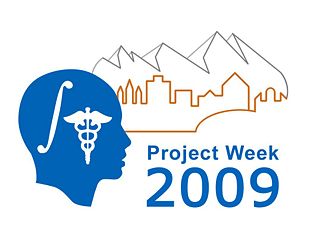Difference between revisions of "2009 Winter Project Week:LesionAlgorithms"
Hjbockholt (talk | contribs) |
Hjbockholt (talk | contribs) |
||
| Line 8: | Line 8: | ||
===Key Investigators=== | ===Key Investigators=== | ||
| − | Marcel, Vince, Ross, Jeremy | + | Mark, Marcel, Vince, Ross, Jeremy |
<div style="margin: 20px;"> | <div style="margin: 20px;"> | ||
| Line 15: | Line 15: | ||
<h1>Objective</h1> | <h1>Objective</h1> | ||
| − | We have tested several algorithms and approaches for classifying white matter lesions. | + | We have tested several algorithms and approaches for classifying white matter lesions.<br> |
| − | There are also other methods within the NA-MIC kit and | + | There are also other methods within the NA-MIC kit and and external approach that is being developed to be used within Slicer (WMLS).<br> |
| − | Currently for our end to end tutorial, we have implemented a novel algorithm. | + | Currently for our end to end tutorial, we have implemented a novel algorithm because the generalizability of our previous method to the clinical sample was poor.<br> |
Revision as of 18:50, 5 January 2009
Home < 2009 Winter Project Week:LesionAlgorithms Return to Project Week Main Page |
Key Investigators
Mark, Marcel, Vince, Ross, Jeremy
Objective
We have tested several algorithms and approaches for classifying white matter lesions.
There are also other methods within the NA-MIC kit and and external approach that is being developed to be used within Slicer (WMLS).
Currently for our end to end tutorial, we have implemented a novel algorithm because the generalizability of our previous method to the clinical sample was poor.
Approach, Plan
Review comparisons of NA-MIC kit tools EM-Segment, Prastawa Method, Magnotta Method, a new method a UPenn, etc
what is the best approach to use for the roadmap project?
What if anything can be leveraged or combined into a universal method?
This work should lead towards planned MICCAI (march 8 due date) or other venue paper on white matter lesion also plan on immediately after full application/analysis of a clinical lupus sample (n=62).
Progress